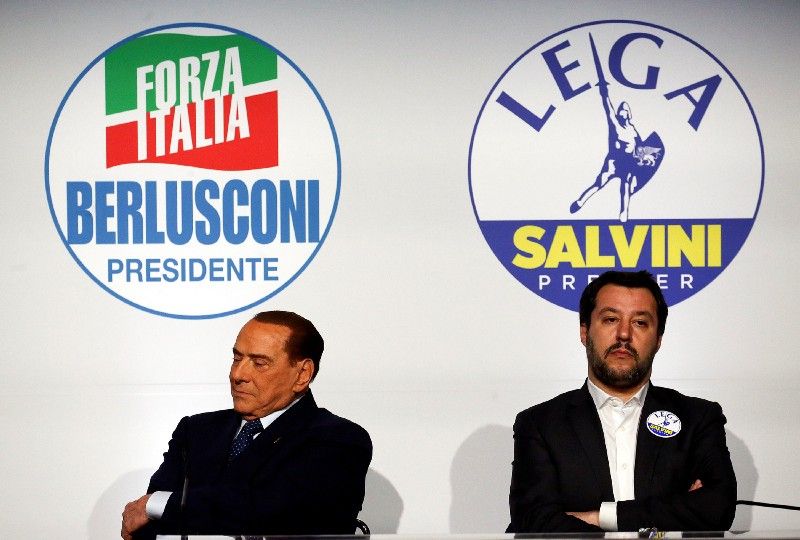March 06, 2018
Italy’s election on Sunday repeated a now-familiar European political story. After a campaign defined largely by anti-immigrant and anti-European rhetoric, disillusioned voters battered centrist parties and boosted upstart contenders and the far right. The biggest winners in Italy were the Five Star Movement, a young protest party started by a TV comedian which espouses online direct democracy, and the rightwing Lega Nord.
But no single party or coalition won enough votes to govern alone, so now the horse trading begins, chiefly between Five Star, Lega, and the beleaguered incumbents of the center-left Democratic Party. The talks could last months, and political deadlock is a national tradition in Italy: the country has had more than 60 governments in the last 70 years.
For Europe there are two main concerns. First, the leading Italian parties have promised to boost spending and cut taxes despite Italy’s huge debt burden. If financial markets get spooked by an inexperienced government, Europe could flirt with a fresh debt crisis in the continent’s third largest economy.
Second, with a more Euroskeptic government in Rome, Brussels will have a harder time reaching common ground on critical issues like Brexit terms, East European defiance of democratic norms, or broader reforms to EU institutions meant to make the Union function better at the cost of even less sovereignty for members.
Within Italy, the challenge for whoever runs the country next is this: voters last Sunday returned a scorching mandate for change. But making good on that expectation won’t be easy in a political culture as corrupt and parochial as Italy’s. To paraphrase a line from The Leopard, the country’s power brokers are exceptionally skilled at changing things in order to keep them the same.
More For You
- YouTube
GZERO World heads to the World Economic Forum in Davos, where Ian Bremmer lookst at how President Trump’s second term is rattling Europe, reshaping both transatlantic relations and the global economy, with Finland’s President Alexander Stubb and the IMF’s Kristalina Georgieva.
Most Popular
Think you know what's going on around the world? Here's your chance to prove it.
- YouTube
How widely is AI actually being used, and where is adoption falling behind? Speaking at the 2026 World Economic Forum in Davos, Brad Smith, Vice Chair and President of Microsoft, outlined how AI adoption can be measured through what he calls a “diffusion index.”
U.S. President Donald Trump holds a bilateral meeting with NATO Secretary General Mark Rutte at the World Economic Forum (WEF) in Davos, Switzerland, January 21, 2026.
REUTERS/Jonathan Ernst
After saying numerous times that he would only accept a deal that puts Greenland under US control, President Donald Trump emerged from his meeting with NATO Secretary General Mark Rutte singing a different tune.
© 2025 GZERO Media. All Rights Reserved | A Eurasia Group media company.
